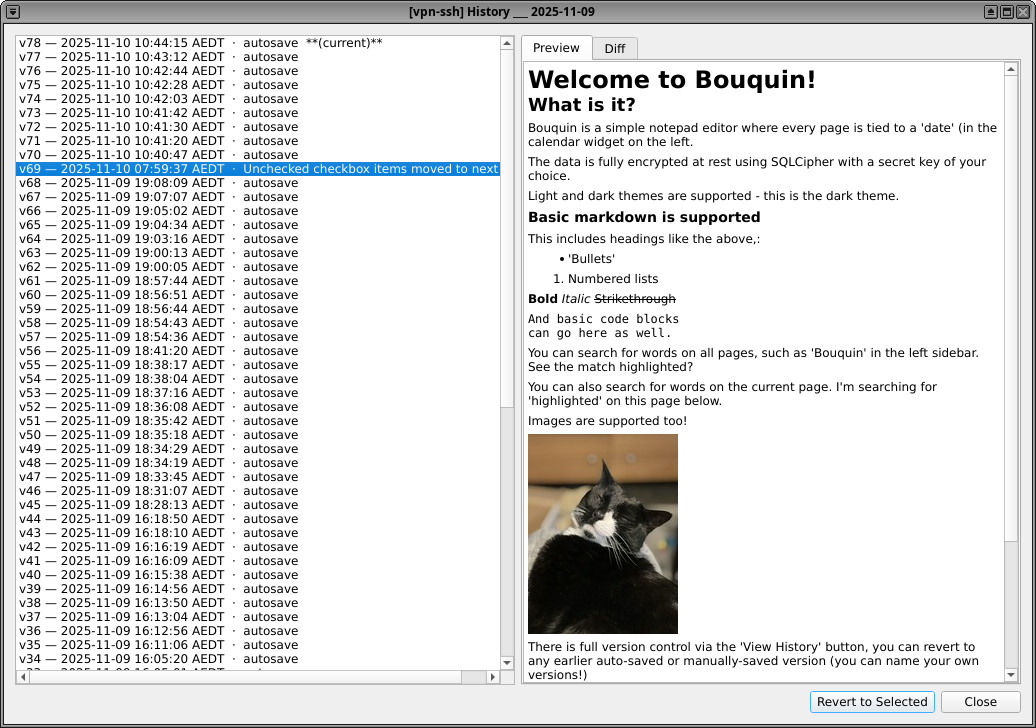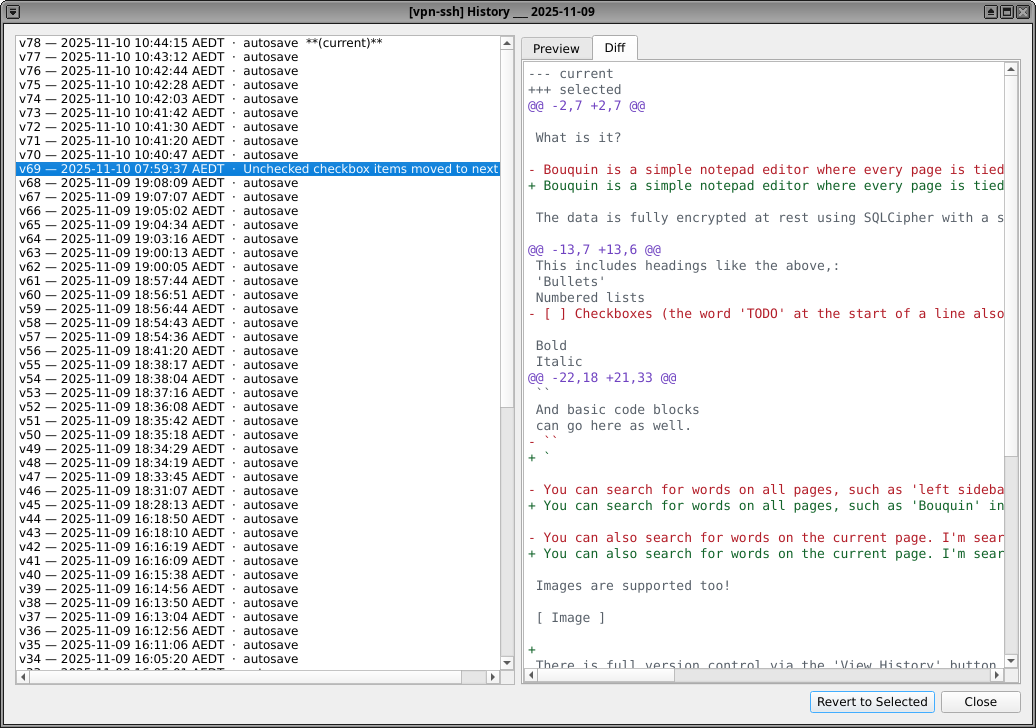| .forgejo/workflows | ||
| bouquin | ||
| screenshots | ||
| tests | ||
| .gitignore | ||
| bouquin.desktop | ||
| CHANGELOG.md | ||
| find_unused_strings.py | ||
| LICENSE | ||
| poetry.lock | ||
| pyproject.toml | ||
| README.md | ||
| release.sh | ||
| tests.sh | ||
| vulture_ignorelist.py | ||
Bouquin
Introduction
Bouquin ("Book-ahn") is a notebook and planner application written in Python, PyQt and SQLCipher.
It is designed to treat each day as its own 'page', complete with Markdown rendering, tagging, search, reminders and time logging for those of us who need to keep track of not just TODOs, but also how long we spent on them.
It uses SQLCipher bindings as a drop-in replacement for SQLite3. This means that the underlying database for the notebook is encrypted at rest.
To increase security, the SQLCipher key is requested when the app is opened, and is not written to disk unless the user configures it to be in the settings.
There is deliberately no network connectivity or syncing intended, other than the option to send a bug report from within the app.
Screenshots
General view
History panes
Some of the features
- Data is encrypted at rest
- Encryption key is prompted for and never stored, unless user chooses to via Settings
- All changes are version controlled, with ability to view/diff versions and revert
- Automatic rendering of basic Markdown syntax
- Tabs are supported - right-click on a date from the calendar to open it in a new tab.
- Images are supported
- Search all pages, or find text on current page
- Add and manage tags
- Automatic periodic saving (or explicitly save)
- Automatic locking of the app after a period of inactivity (default 15 min)
- Rekey the database (change the password)
- Export the database to json, html, csv, markdown or .sql (for sqlite3)
- Backup the database to encrypted SQLCipher format (which can then be loaded back in to a Bouquin)
- Dark and light theme support
- Automatically generate checkboxes when typing 'TODO'
- It is possible to automatically move unchecked checkboxes from yesterday to today, on startup
- English, French and Italian locales provided
- Ability to set reminder alarms in the app against the current line of text on today's date
- Ability to log time per day and run timesheet reports
How to install
Make sure you have libxcb-cursor0 installed (it may be called something else on non-Debian distributions).
It's also recommended that you have Noto Sans fonts installed, but it's up to you. It just can impact the display of unicode symbols such as checkboxes.
If downloading from my Forgejo's Releases page, you may wish to verify the GPG signatures with my GPG key.
From PyPi/pip
pip install bouquin
From AppImage
- Download the Bouquin.AppImage from the Releases page, make it executable with
chmod +x, and run it.
From source
- Clone this repo or download the tarball from the releases page
- Ensure you have poetry installed
- Run
poetry installto install dependencies - Run
poetry run bouquinto start the application.
From the releases page
- Download the whl and run it
How to run the tests
- Clone the repo
- Ensure you have poetry installed
- Run
poetry install --with test - Run
./tests.sh


